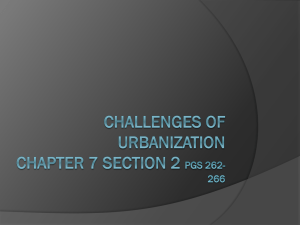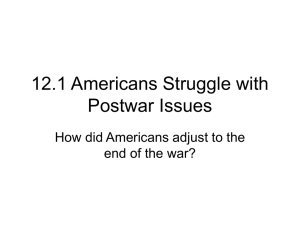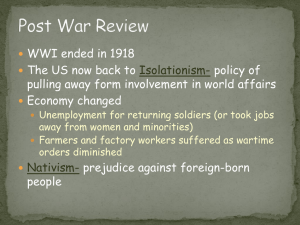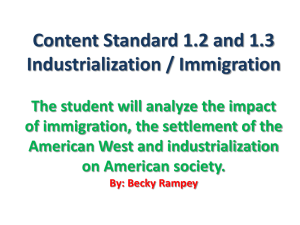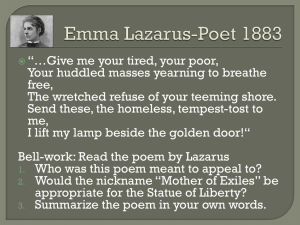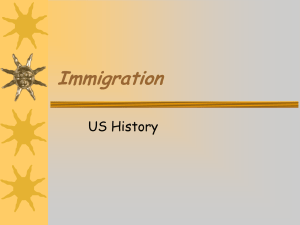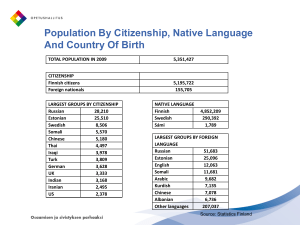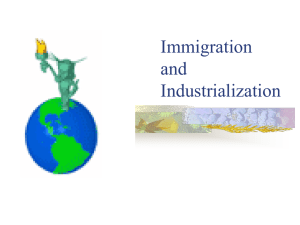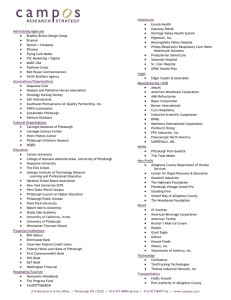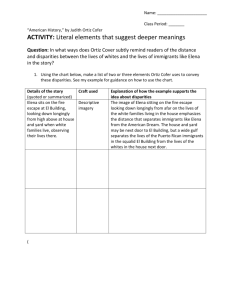immigration
advertisement
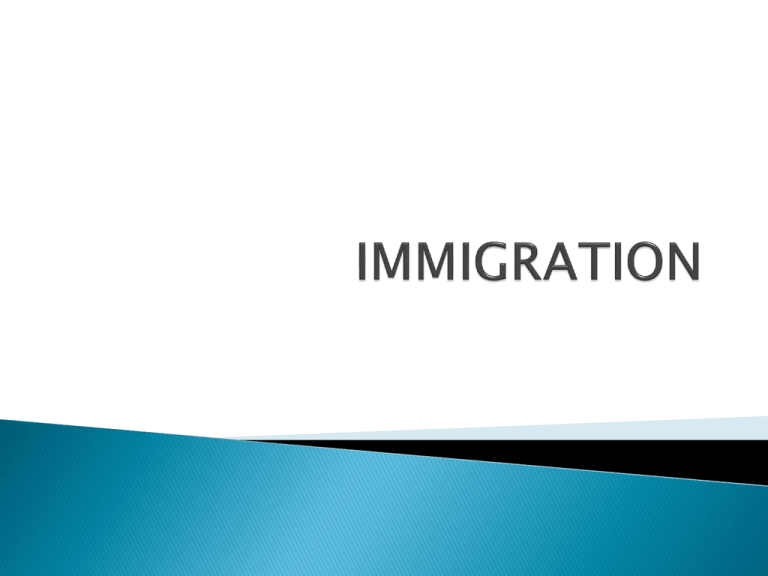
Emigration: the act of leaving one’s country to settle in another Immigration: the act of moving into a new country Why would someone leave his or her homeland to make a long journey to a new country? There are two types of motivation for immigration ◦Push(need to leave in order to survive) ◦Pull (attracted to new way of life) To escape natural disasters: many Irish immigrants came to America in the 1800s to escape the famine that hit their country. This famine was followed by an epidemic of typhus In search of religious freedom: Some people, such as Jews and Protestants, came to escape religious persecution. Today America is made up of people of many faiths. To escape an oppressive government: Some governments, such as the Russian government in the 19th century, seriously limited the freedom of its people. America is known as the “Land of the Free.” To flee a war-torn country: When a country goes to war, many families leave to find a safer place to live, such as European Jew did during World War II. By Force: Millions of Africans were brought to America against their will and forced to be slaves. They were unwilling immigrants. To find work: Many people, such as Italians and Asians, wanted to escape economic difficulties, poverty, and unemployment. They thought of America as the “Land of Opportunity.” To get land of their own: Many countries in Europe were becoming overpopulated and good farmland was getting harder to find. America was still developing and had lots of land. For adventure: Going to another country to live can be uncertain and exciting. Some people wanted to experience something new. Hope for better opportunities: The rich prairie land of the United States attracted many European farmers. Today, professional people commonly emigrate because of better opportunities elsewhere. PUSH PULL To Escape Natural Disasters To Find Work In Search of Religious Freedom To Get Land of their Own To Escape an Oppressive Government For Adventure To Flee a War-torn Country Hope for Better Opportunities By Force Chinese people came to the U.S. in great numbers after the California gold rush of 1849. By 1852 about 25,000 Chinese had arrived in San Francisco and were working in the goldfields, on railroads, and in agriculture. Mexican immigrants settled in the southwestern part of the U.S. in the late 1800s. By 1900, about 80,000 Mexican immigrants were living in Texas, New Mexico, Arizona, and southern California. Many found jobs on farms and in factories. European immigrants were the largest group to come to America. Nearly 16 million immigrants arrived from Europe between 1890-1920. ◦ Before 1890 – Most European immigrants came from Britain, Ireland, Germany, Norway, and Sweden ◦ Between 1890-1920 – immigrants also came from Italy, Greece, Poland, Austria, Hungary, Armenia, and Russia Many immigrants stayed in New York City or moved to other industrial cities like Pittsburgh, Pennsylvania, where they found jobs in factories. Pittsburgh is the second largest city in Pennsylvania after Philadelphia. It is located where the Allegheny and Monongahela Rivers come together to form the Ohio River. Due to these massive rivers, Pittsburgh relies on a number of bridges to deal with traffic and transportation. Pittsburgh has so many bridges that it is often called the “Bridge Capital of the United States.” The city’s location has made it a key industrial center. The Allegheny, Monongahela, and Ohio Rivers provide key water routes for transporting industrial resources and goods. During the early 1900s, Pittsburgh manufactured almost half of the nation’s steel. Today, Pittsburgh is still known as the “Steel City.” While many immigrants came from other countries, people living in the U.S. moved from place to place. In late 1870s about 40,000 African Americans moved west to Kansas to farm or find better job opportunities. Between 1915-1930, many African Americans moved to industrial cities in the North such as New York, Chicago, Detroit, Pittsburgh, Boston, Cleveland, and St. Louis.



